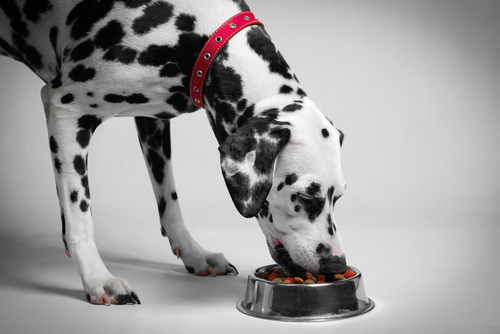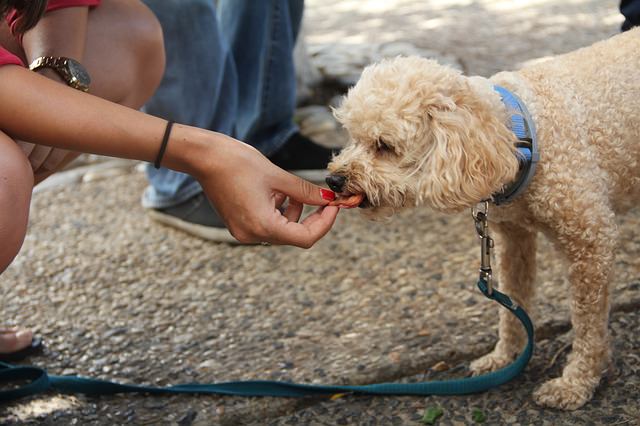To know whether or not your dog suffers from Food Allergy, you must first have an understanding of how allergies work. An allergy is when an animal’s immune system identifies something that is harmless as a threat. Once his system sees the offending molecule (allergen), it then mounts a response to the perceived threat just as it would to a real threat like a virus or bacteria, causing inflammation and clinical signs of illness.

Some ingredients are more apt to cause this hyper-immunity than others. Proteins are thought to be common offenders. Dogs suffering from food allergy may have skin itching, skin and ear infections and even vomiting and/or diarrhea.
Food manufacturers and marketers love to promote their food as being “hypoallergenic” or less likely to cause allergy, but in truth, the reaction depends more on your dog’s individual immune system than the food, just like when children are allergic to peanuts. No one thinks that peanuts as a whole are inherently bad, except to the allergic child.
Vomiting, diarrhea, and gas are frequently thought by pet owners to be food allergy, but are more likely to be a transient food intolerance (when a pet eats something he was not supposed to), infections or even worms. True food allergies, also called Adverse Food Reaction (AFR), are caused by an immune response to a main diet ingredient or something that is fed very frequently, not an incidental or occasional ingestion.

If your veterinarian suspects food allergy, He/she will rule out all the more common causes of itching, skin disease and/or diarrhea and then he/she will probably recommend a dietary trial. Your vet will prescribe a specific diet trail diet. Diets used for this role are “novel protein” source or hydrolyzed diets.
Novel protein sources mean that the protein molecules in the diet are completely new to your dog so his immune system has not had an opportunity to develop a reaction to it. Novel protein diets are available only by prescription. Choosing a pet store or grocery store option that says “hypoallergenic” is absolutely not a diet trial, so make sure that your vet is supervising any diet trial.

Hydrolyzed diets have been modified in a laboratory to create no immune reaction and are another excellent choice for a diet trial. These, too, are available only from your veterinarian by prescription.
During the prescribed trial period, your dog must ingest absolutely nothing but the novel or hydrolyzed diet. No treats, people foods, flavored toothpaste, or natural meat-flavored medications can be offered at all. If the dog seems to respond favorably by the end of the trial, the original diet must be restored, and the dog must be monitored for the recurrence of signs. Only after the dog responds and then relapses can a diagnosis of Adverse Food Reaction be made.
Remember AFR is a clinical diagnosis that can only be made by a veterinarian. There are other causes of itching and recurrent skin infections, and these must also be ruled out or addressed. Your veterinary staff will help you know the steps toward confirming your dog’s diagnosis and treating his issue.
